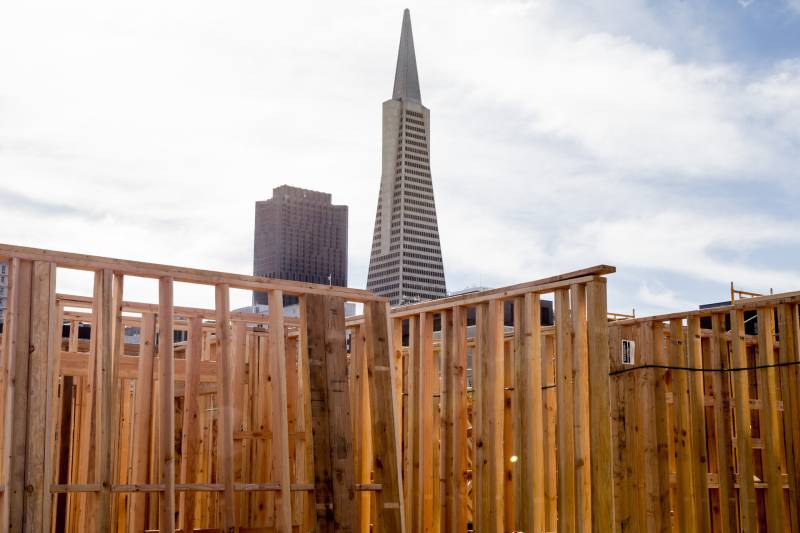That opportunity for subjective review adds delays and risk for developers, O’Neill said. Her review found that the median time for approving multifamily housing in San Francisco was 34 months between 2018 and 2021 — up from 27 months just a few years before. That process can be dragged out further because San Francisco law allows additional time for appeals.
O’Neill said many of these local laws were written to encourage the proliferation of dense housing. But over the years, they have done the opposite.
“San Francisco actually has comparatively more land zoned for dense housing than a lot of the other jurisdictions in California I’ve studied,” she said. “So the local law is both written in a way to try to say we want to welcome people, we want to have multifamily housing, and yet it’s written in a way to make the process so onerous, so unpredictable, it effectively blocks the development of multifamily housing. And that has huge implications for how inclusive San Francisco truly can be.”
But changing discretionary policies works, the report states. It cites the implementation of a 2017 state law, Senate Bill 35, which required local governments to streamline approval of some projects.
Before SB 35, San Francisco approved just five affordable housing projects over three years from 2014–2017. Since it took effect, 18 were approved between 2018 and 2021, 14 of them directly because of SB 35.
Velasquez said that these numbers, and the lessons gleaned from this report and its outcomes, will help the state speed up housing production in other cities around California.
“A ministerial approval process is essential, to take politics, subjectivity out of the equation, out of the decision-making process. San Francisco needs to do that,” he said. “These lessons that we’re learning .… other jurisdictions will just learn from and try to apply.”
The report notes that to meet its housing goals, set by state law, the city would need to build more than 10,000 housing units a year, more than half of them affordable, each year through 2031. The city’s goals call for more than 82,000 new units to be constructed by 2031.
“Yet they have permitted less than one home per day in 2023,” Velasquez said. “The comparison just is egregious of what they have to approve versus what they’re approving now.”

